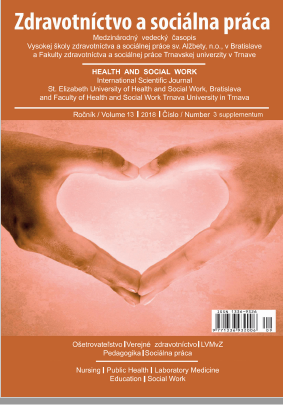NÁRODNÍ KOORDINAČNÍ CENTRUM PRO VZÁCNÁ ONEMOCNĚNÍ – VÝSLEDKY PROJEKTU NF-CZ11-PDP-3-003-2014
NATIONAL COORDINATION CENTRE FOR RARE DISEASES – RESULTS OF PROJECT NF-CZ11-PDP-3-003-2014
Author(s): I. FunkováSubject(s): Evaluation research, Health and medicine and law
Published by: SAMOSATO, s. r. o., Bratislava, Slovensko - MAUREA, s. r. o., Plzeň, Česká republika
Keywords: rare diseases; molecular genetic diagnosis; RD awareness raising; patient groups; specialised centres;
Summary/Abstract: Introduction: Rare diseases (RDs) constitute a group of diseases characterised by a low prevalence in the population. The typical figure is 5 patients among 10,000 individuals. Rare diseases are chronic, progressive, and have unfavourable prognoses. They are very heterogeneous, and so one must (i) have a specific idea, (ii) identify the disease, (iii) help, and (iv) get the funds (this is known as the '4P' principle in Czech because of the alliteration of the terms.) Over 8,000 rare diseases exist, but only 200 of them are on the ICD-10 list (orpha.net). The number of RD patients is estimated at some 20,000 in the Czech Republic. RDs are very frequently present at birth; they may be present in 4–5 % of newborns and babies. Such RDs include mainly metabolic disorders, genetic syndromes, and rare tumours. About 80 % RDs are due to highly penetrant mutations; the remaining RDs are multifactorial or are caused by epigenetic environmental effects, and their pathogenesis is often unknown.
Journal: International Journal of Health, New Technologies and Social Work
- Issue Year: 13/2018
- Issue No: Suppl.
- Page Range: 137-140
- Page Count: 4
- Language: English, Czech

